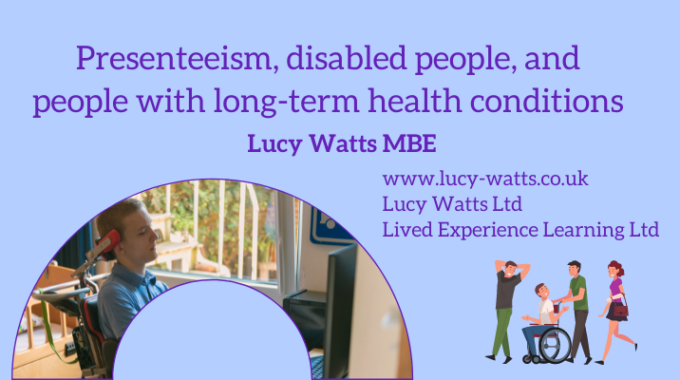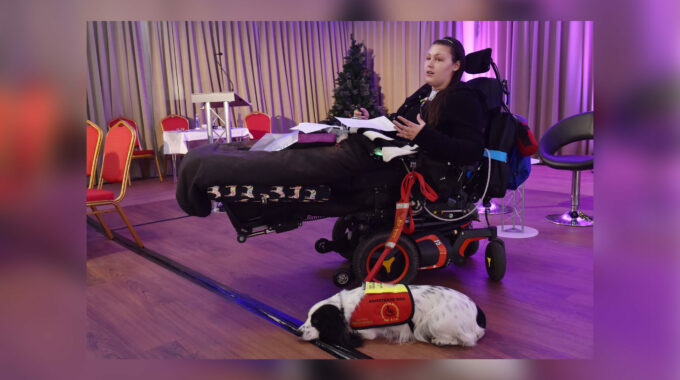What if we viewed lived experience as an asset? As an asset of professional, economic,…
World Hospice & Palliative Care Day 2016 – Living & Dying in Pain: It Doesn’t Have To Happen
Today is World Hospice and Palliative Care Day, celebrating supportive/palliative and hospice care around the world. This year’s theme is Living And Dying In Pain: It Doesn’t Have To Happen.
Palliative care has been a part of my life since April 2011 when The J’s Hospice came on board and my hospice nurse soon had me admitted to hospital and started on Total Parenteral Nutrition, TPN, which saved my life; if I hadn’t started TPN when I did, I’d have died within a week. Bev and the hospice saved my life, one I so nearly lost to type 3 intestinal failure caused by Chronic Intestinal Pseudo Obstruction.
Since then, palliative and hospice care has enriched and enhanced my life. It’s brought symptom control, better condition management, a change in care perspective and as a result, improved quality of life. I went from being completely bed bound with no quality, to now getting out with Molly, my assistance dog, every day, going to charity events, giving speeches, achieving and spending quality time with family and friends, including going out for dinner with my family for the first time in nine years. It’s all these precious things I owe to palliative care.
I have been supported by two young adult hospices: The J’s Hospice, a hospice at home service in my home county of Essex, and Jacksplace in Winchester, where I had two inpatient respite stays a few years ago; stays which were wonderful and, though I no longer have funding to go since I have a home ITU nurse package, I wouldn’t hesitate if I needed to stay there in the future. The J’s continue to support me, and I have a palliative care consultant locally as well.
I live with severe pain, it is something that is a permanent fixture in my life. I’m on high doses of opioid medication (Fentanyl) to control my pain. I also rely on medication to prevent vomiting and alleviate nausea, and have 5 litres of intravenous fluid every day – 4 litres in my TPN feeds, and an extra litre of hartmann’s solution – to manage my fluid requirements so that I am not left dehydrated. All of these are administered at home by my ITU nurses who care for me every day from 7am until 11pm, and a carer takes over from 11pm to 7am when the next nurse starts. I have the support of a dedicated young adult hospice, I have all the equipment I need, technology, support and expertise and much as my conditions cause great suffering, I am not left suffering without support or the right medication; my pain is never completely gone, but it is managed to the best of our ability. I have no gastrointestinal absorption, therefore my drugs must be buccal, patch or intravenous, or at a push, subcutaneous or intramuscular but I often get infections and sores from injections. I live in a country where I have access to adequate pain relief and other medications in forms I can absorb the drugs; if oral morphine was all I could have, I’d never get any pain relief.
I’m very fortunate; I live in a country where pain relief is readily available, in different formulations, routes of administration and is readily available to people of all ages. I live in a country where we have access to a whole range of symptom management drugs. We have dedicated hospices and specialist palliative care consultants and nursing teams, they may not be perfect but we have these services for children, young people, adults and the elderly. We are very fortunate. Many countries have no dedicated hospices, and in many countries pain relief like morphine is not available in paediatric formulations, leaving children suffering unnecessarily, or in forms other than oral for those who may not be able to take medication orally. I wouldn’t survive if I lived in a developing country, they don’t have the specialist care, treatments, TPN (let alone home TPN) or vital drugs in forms I can absorb. Millions of people around the world are suffering needlessly, with no access to pain relief, palliative care or hospices or support for family members to share the care burden.
Palliative care is not just about end of life care, it’s about living, too. Living well, symptom control and quality of life as well as end of life care and support to have a good death. In today’s day and age everyone, regardless of age, race, location, religion or language should have access to vital pain relief and symptom relieving medications, to specialist palliative care, and hospices for both children and adults. However there just isn’t the funding, and even hospices in the UK are struggling. This means millions of people – including children – are suffering needlessly and dying in pain. Living and dying in pain doesn’t have to happen, and that’s the message we want everyone to take away from this year’s World Hospice and Palliative Care Day.
Here is my video for this year’s World Hospice & Palliative Care Day:








This Post Has 0 Comments